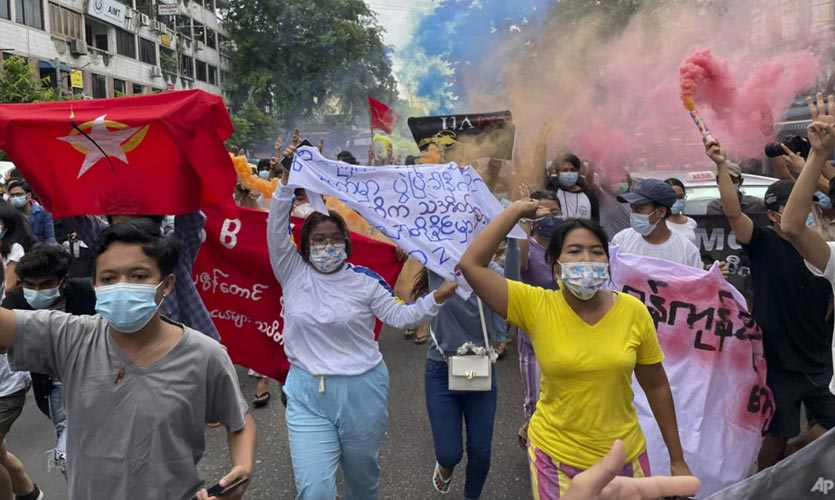Despite the snub the regime received from a regional bloc a few days earlier, Myanmar’s top junta official has announced that 5,636 people who were jailed during a protest against the coup in February will be freed.
According to a local monitoring group, there has been a crackdown on dissent that has killed more than 1,100 civilians and arrested more than 8,000 in Myanmar since the coup. An estimated 7,300 political prisoners are currently incarcerated, according to the Assistance Association for Political Prisoners. The prisoners will be freed to mark the Thadingyut festival later in October, according to the army general Min Aung Hlaing.
Earlier this month, ASEAN excluded Aung Hlaing from a summit of the 10-member bloc due to their commitment to defusing the crisis. Aung Hlaing gave no details about who would be on the list and prison authorities did not respond to AFP’s requests for comment. In June, Myanmar authorities released more than 2,000 anti-coup protesters from prisons across the country, including journalists critical of the military government.
The American journalist, Danny Fenster, has been imprisoned since May 24. According to Aung Hlaing, more than 1,300 of those scheduled to be released will be let go on the condition that they sign agreements pledging not to reoffend. According to David Mathieson, a former Myanmar analyst, such arrangements are essentially a sort of parole that includes continual threatening surveillance.
After the junta refused to meet with a special envoy and “all stakeholders” in Myanmar – including ousted civilian leader Aung San Suu Kyi -– the bloc took a strong stance. Despite the ASEAN’s statement, “insufficient progress” has been made in implementing the five-point plan agreed upon by the bloc’s leaders in April. The junta accused ASEAN of violating its policy of non-interference in the domestic affairs of its members by making this decision.
Read more: Tensions Elevate Between Iran And Azerbaijan
Since joining ASEAN in 1997, Myanmar has been a thorn in ASEAN’s side. In defending its power grab, Min Aung Hlaing has cited alleged vote rigging in last year’s elections, which Suu Kyi’s National League for Democracy (NLD) party won convincingly.
It ended Myanmar’s brief flirtation with democracy, and the 76-year-old Suu Kyi now faces a raft of charges in a junta court that could see her imprisoned for decades. Last week, her chief lawyer said that he was banned from talking to journalists, diplomats, or international organisations by the junta. Another lawyer on her legal team also faced a similar ban — effectively muzzling key sources of information on her court proceedings. Suu Kyi, the Nobel laureate, is expected to testify in court for the first time later this month. She has spent much of her life resisting Myanmar’s generals.










